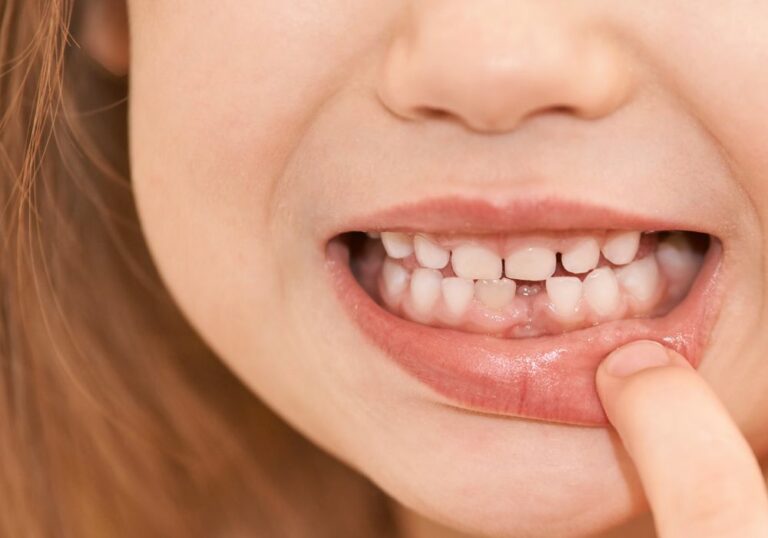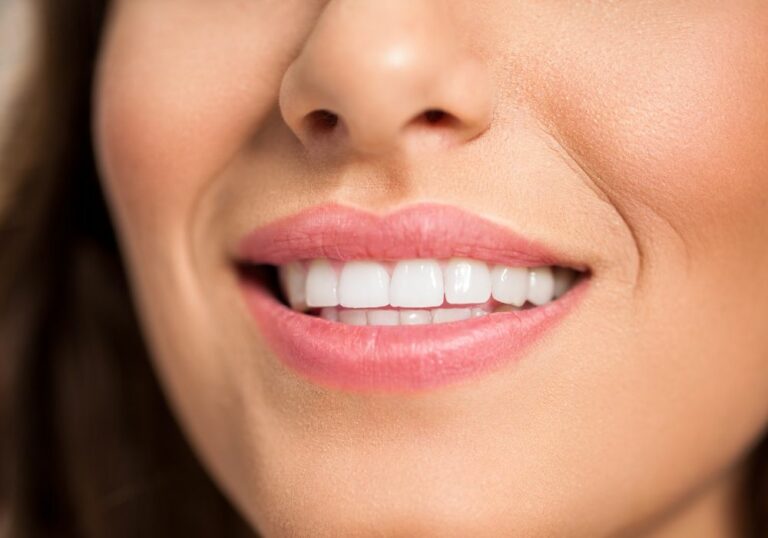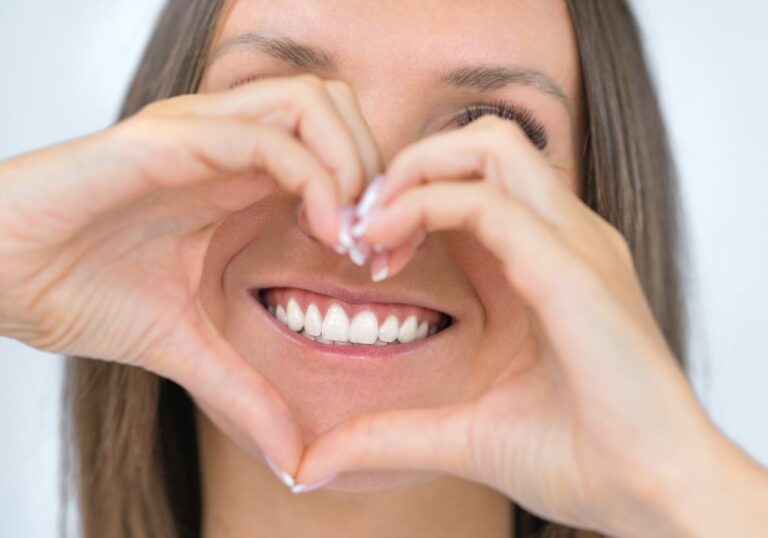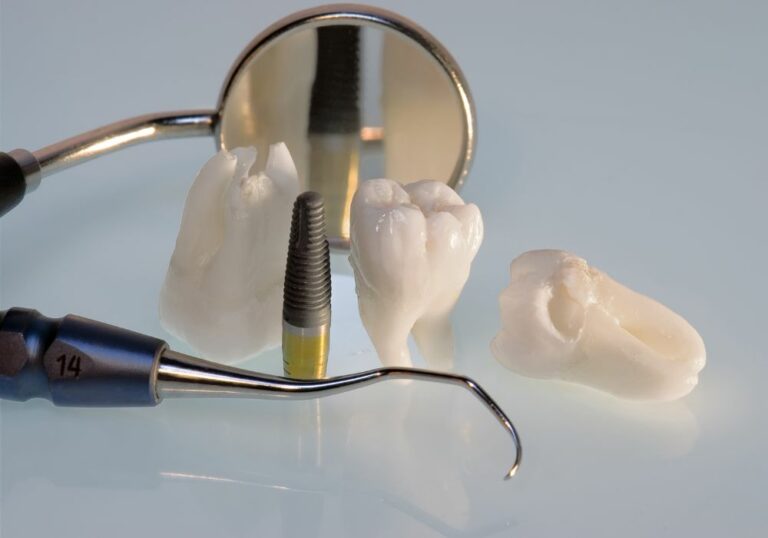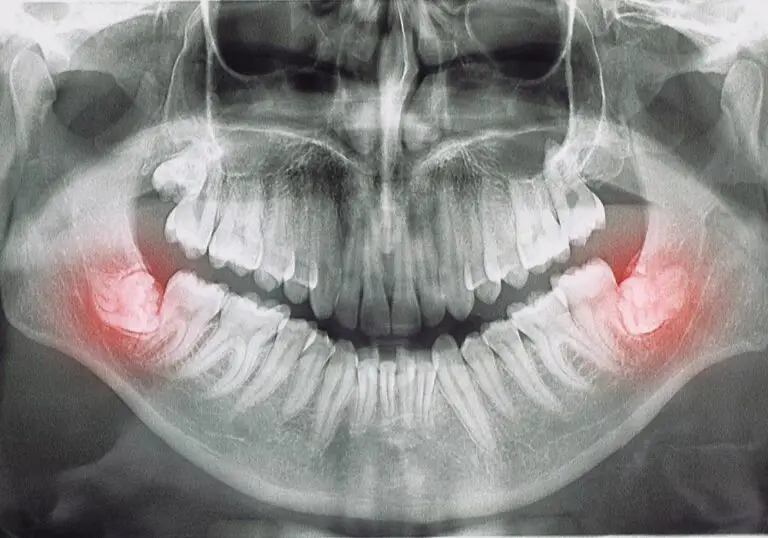Are you a fan of carbonated drinks but worry about the effects they may have on your teeth? You’re not alone. Many people enjoy the refreshing taste of soda or energy drinks, but are concerned about the negative impact they can have on their oral health. Fortunately, there are steps you can take to protect your teeth from the harmful effects of carbonated beverages.
One of the best ways to protect your teeth from carbonated drinks is to limit your consumption. Cutting back on soda and energy drinks can not only benefit your teeth, but also your overall health. Additionally, drinking through a straw can help reduce the amount of contact your teeth have with the acidic liquid, further minimizing the damage. Another helpful tip is to drink water or milk after consuming carbonated drinks to help neutralize the acid in your mouth.
Understanding Carbonated Drinks and Their Effects on Teeth
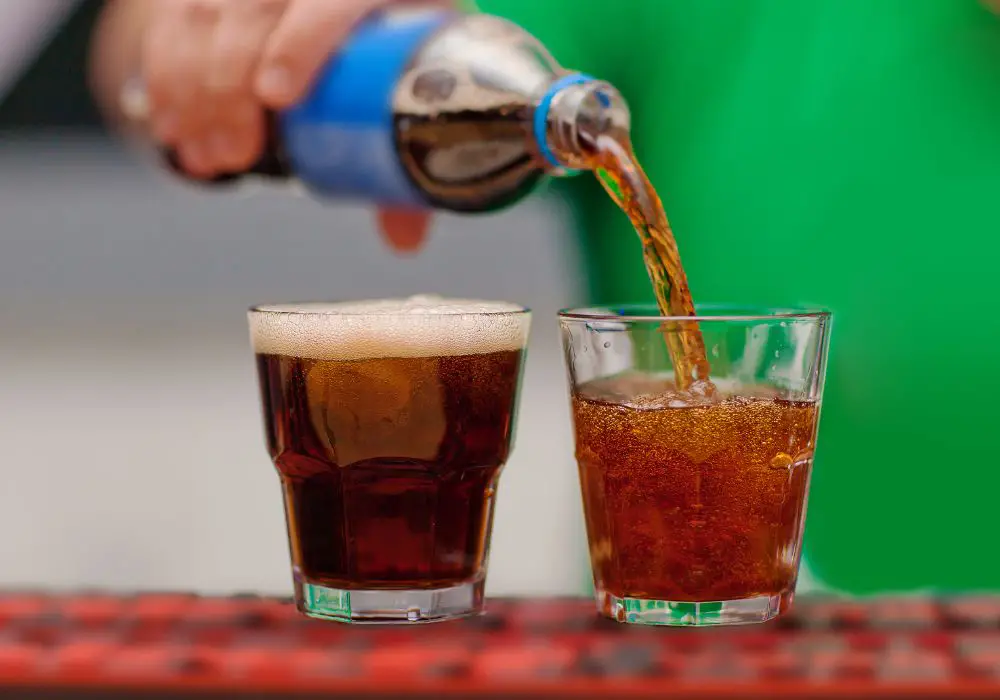
Carbonated drinks, also known as fizzy or sparkling drinks, are popular beverages that come in various forms such as soda, energy drinks, and sparkling water. These drinks contain carbon dioxide gas that creates bubbles and gives them their characteristic fizziness. While carbonated drinks are refreshing and enjoyable to drink, they can have negative effects on your dental health.
When you drink carbonated drinks, the sugars and acids in the drink interact with the bacteria in your mouth to form acid. This acid attacks your tooth enamel, which is the hard, protective outer layer of your teeth. Over time, this acid can wear down your enamel, making your teeth more vulnerable to cavities, sensitivity, and tooth decay.
Both regular and sugar-free carbonated drinks contain their own acids, such as phosphoric acid and citric acid, which can further damage your tooth enamel. In fact, some studies have shown that the acid in carbonated drinks can be more harmful to your teeth than the sugar content.
It’s important to note that even sparkling water, which is often marketed as a healthier alternative to soda, can have negative effects on your teeth. While sparkling water is less acidic than soda, it still contains carbon dioxide gas, which can make the water slightly more acidic and potentially harmful to your tooth enamel.
To protect your teeth from the negative effects of carbonated drinks, it’s important to limit your consumption of these beverages. You can also take the following steps to minimize the damage to your teeth:
- Drink carbonated drinks through a straw to minimize contact with your teeth.
- Rinse your mouth with water after drinking carbonated drinks to help neutralize the acid.
- Wait at least 30 minutes after drinking carbonated drinks before brushing your teeth, as brushing immediately after can actually damage your enamel further.
- Choose sugar-free or low-sugar carbonated drinks when possible, and drink them in moderation.
By understanding the effects of carbonated drinks on your teeth and taking steps to protect your dental health, you can still enjoy these beverages while maintaining a healthy smile.
The Role of Sugar and Acid in Carbonated Drinks
When it comes to protecting your teeth from carbonated drinks, it’s important to understand the role of sugar and acid in these beverages. While sugar is often the main culprit behind tooth decay, acid can also play a significant role.
Carbonated drinks, including soda, energy drinks, and sparkling water, contain high levels of acid. When you consume these beverages, the acid can erode the enamel on your teeth, which can lead to tooth decay and other dental problems.
In addition to acid, many carbonated drinks also contain sugar. When sugar mixes with the bacteria in your mouth, it produces acid that can wear away your tooth enamel. This can make your teeth more susceptible to decay and cavities.
To protect your teeth from the harmful effects of carbonated drinks, it’s important to limit your consumption of these beverages. You should also make sure to brush your teeth regularly and use fluoride toothpaste to help strengthen your tooth enamel.
If you do choose to drink carbonated beverages, consider using a straw to help minimize contact with your teeth. You can also rinse your mouth with water after drinking these beverages to help neutralize the acid and reduce its impact on your teeth.
By being mindful of the sugar and acid content in carbonated drinks and taking steps to protect your teeth, you can enjoy these beverages in moderation without sacrificing your dental health.
Dental Erosion Caused by Carbonated Drinks
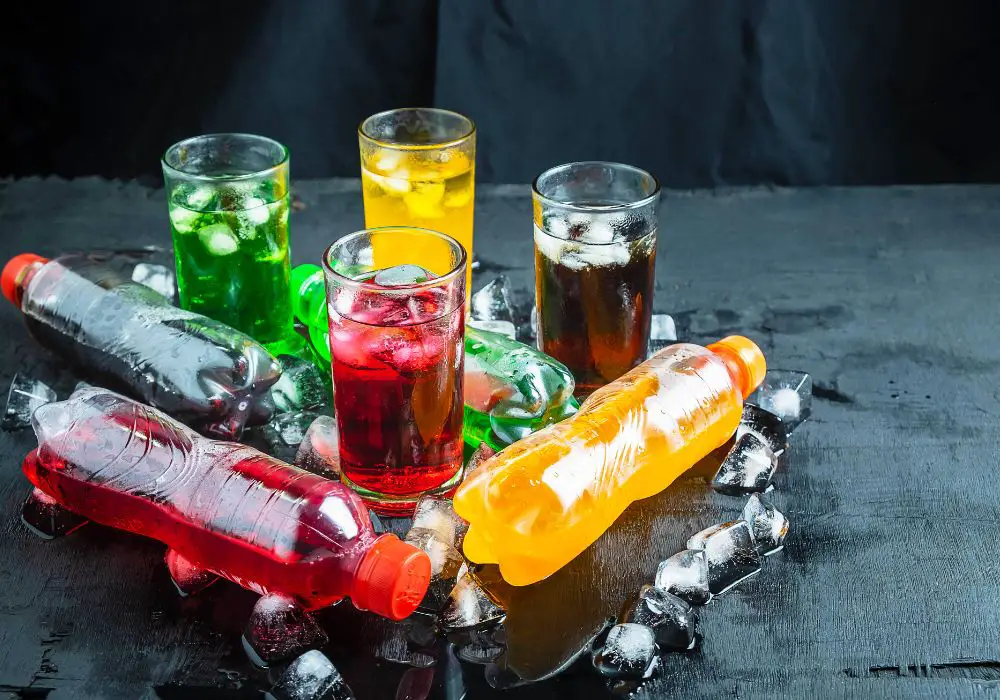
Carbonated drinks are a popular beverage choice for many people. However, they can have a negative impact on your dental health. Dental erosion is a chemical process characterized by acid dissolution of dental hard tissue not involving acids of bacterial origin. Carbonated drinks, including soda, are highly acidic and can cause dental erosion over time.
When you consume carbonated drinks, the acids in the drinks encounter the tooth enamel, which is the outermost protective layer on your teeth. The acids in the drinks can reduce the surface hardness of your teeth, leading to dental erosion. This can result in sensitivity, discoloration, and even cavities.
Beverages with high acid content include all carbonated beverages and citrus-based drinks such as orange juice and grapefruit juice. Drinking these beverages frequently or in large quantities can increase the risk of dental erosion.
To protect your teeth from dental erosion caused by carbonated drinks, consider the following tips:
- Limit your consumption of carbonated drinks and other acidic beverages.
- Drink carbonated drinks through a straw to minimize contact with your teeth.
- Rinse your mouth with water after drinking carbonated drinks to help neutralize the acid.
- Wait at least 30 minutes after consuming carbonated drinks before brushing your teeth to avoid damaging your tooth enamel.
By taking these steps, you can help protect your teeth from dental erosion caused by carbonated drinks. Remember to practice good oral hygiene habits, such as brushing twice a day and flossing daily, to keep your teeth healthy.
How to Minimize the Damage of Carbonated Drinks
Carbonated drinks are a popular beverage choice, but they can be harmful to your teeth. The carbonation in these drinks can wear down your tooth enamel, leading to cavities and tooth decay. However, there are steps you can take to minimize the damage of carbonated drinks.
Reducing Consumption
One of the most effective ways to protect your teeth from carbonated drinks is to reduce your consumption. Try to limit your intake of carbonated drinks and opt for water or other non-acidic beverages instead. If you do decide to drink a carbonated beverage, try to consume it quickly to minimize the amount of time it is in contact with your teeth.
Drinking with a Straw
Using a straw can help to minimize the amount of contact between the carbonated drink and your teeth. This can help to reduce the amount of damage that the drink can cause to your tooth enamel. When using a straw, try to position it towards the back of your mouth to further minimize contact with your teeth.
Rinsing Mouth After Drinking
After consuming a carbonated drink, rinse your mouth with water to help neutralize the acid in the drink. This can help to reduce the amount of damage that the drink can cause to your teeth. Additionally, wait at least 30 minutes before brushing your teeth after consuming a carbonated drink. Brushing immediately after drinking can actually cause more damage to your tooth enamel.
By following these tips, you can help to minimize the damage of carbonated drinks on your teeth. Remember to also maintain good oral hygiene habits, such as brushing twice a day and flossing daily, to keep your teeth healthy and strong.
Importance of Regular Dental Check-ups
Regular dental check-ups are essential for maintaining good oral health and preventing dental problems. A dental check-up involves a thorough examination of your teeth and gums, as well as a professional cleaning to remove any plaque or tartar buildup.
During a dental check-up, your dentist will also check for any signs of tooth decay, gum disease, or other oral health issues. Early detection of these problems is crucial for effective treatment and preventing further damage to your teeth and gums.
In addition to preventing dental problems, regular dental check-ups can also help you maintain a healthy and beautiful smile. Your dentist can provide you with valuable advice on how to care for your teeth and gums at home, including proper brushing and flossing techniques, as well as recommendations for oral care products.
It is recommended that you visit your dentist for a check-up at least twice a year, or more frequently if you have a history of dental problems or other risk factors. By making regular dental check-ups a priority, you can help ensure that your teeth and gums stay healthy and strong for years to come.
Healthy Alternatives to Carbonated Drinks

If you’re looking for a healthier alternative to carbonated drinks that won’t damage your teeth, you’re in luck! There are plenty of options to choose from that can satisfy your thirst and keep your teeth healthy.
Water
Water is the best drink to have for your teeth, hands down. It works well to clean your teeth after meals by washing away food and bacteria. As a result, you get fresher breath. It also stimulates saliva production which keeps your breath smelling clean. Drinking water also helps to keep your body hydrated and can reduce the risk of tooth decay.
Milk
Milk is a great alternative to carbonated drinks because it contains calcium and other minerals that are essential for healthy teeth. It also helps to neutralize acids in your mouth that can cause tooth decay. If you’re lactose intolerant, you can try almond milk, soy milk, or other non-dairy milk alternatives that are fortified with calcium.
Tea
Tea is a great alternative to carbonated drinks because it contains antioxidants and other compounds that can help to reduce inflammation and promote oral health. Green tea, in particular, has been shown to have a positive effect on oral health by reducing the risk of gum disease and tooth decay. Just be sure to drink it without sugar or honey, as these can be harmful to your teeth.
Fruit Juice
Fruit juice is a great alternative to carbonated drinks because it provides essential vitamins and minerals that are important for overall health. However, it’s important to choose 100% fruit juice without added sugars, as these can be harmful to your teeth. Drinking fruit juice with a meal can also help to neutralize acids in your mouth and reduce the risk of tooth decay.
Conclusion
In conclusion, there are plenty of healthy alternatives to carbonated drinks that can help to protect your teeth and promote overall health. Drinking water, milk, tea, and fruit juice can all be great options, but it’s important to choose them wisely and drink them in moderation. By making these simple changes to your diet, you can help to keep your teeth healthy and strong for years to come.
Frequently Asked Questions
Is it possible to drink soda without damaging my teeth?
Unfortunately, carbonated drinks can be harmful to your teeth because they contain high amounts of sugar and acid. Even diet sodas and other sugar-free carbonated beverages can lead to cavities. However, there are some ways to minimize the damage, such as drinking soda through a straw, rinsing your mouth with water after drinking, and limiting your consumption.
What are the best ways to protect my teeth from carbonated drinks?
The best way to protect your teeth from carbonated drinks is to limit your consumption. You can also drink soda through a straw to minimize contact with your teeth, rinse your mouth with water after drinking, and wait at least 30 minutes before brushing your teeth to allow your saliva to neutralize the acid.
Why do my teeth feel weird after drinking soda?
The acid in carbonated drinks can erode and reduce the hardness of the enamel that protects your teeth, which can lead to tooth sensitivity and discomfort. If you experience sensitivity or discomfort after drinking soda, try switching to a different drink or limiting your consumption.
What is the best way to neutralize the acid in carbonated drinks?
Saliva is the body’s natural defense against acid, so waiting at least 30 minutes before brushing your teeth after drinking soda can allow your saliva to neutralize the acid. You can also rinse your mouth with water after drinking to help neutralize the acid.
Can drinking soda through a straw help protect my teeth?
Drinking soda through a straw can help minimize contact with your teeth, which can help protect them from the acid in carbonated drinks. However, it’s still important to limit your consumption and rinse your mouth with water after drinking.
What are some alternative drinks to soda that won’t damage my teeth?
Water is the best beverage for your teeth because it naturally helps fight cavities and washes away leftover food that can cause cavities. Milk and unsweetened sparkling water are also good options. If you’re looking for a sweet drink, try fruit-infused water or herbal tea without sugar.

